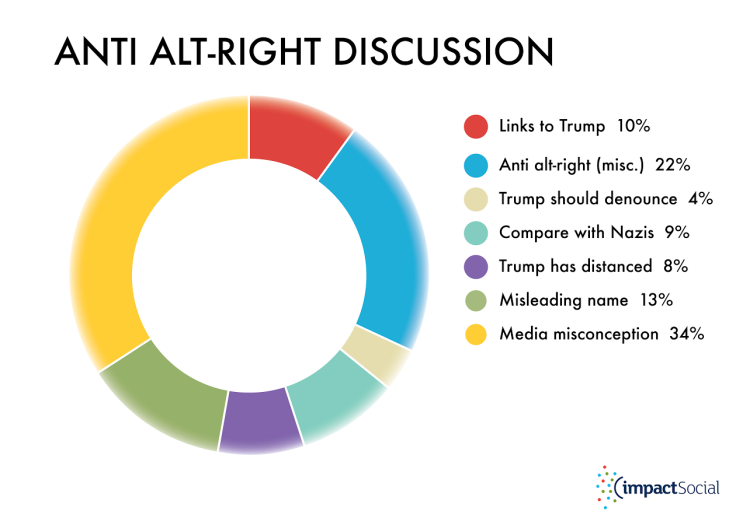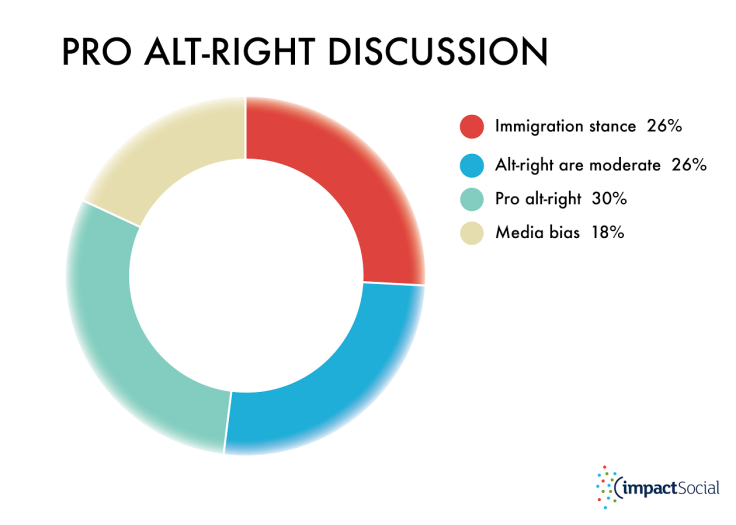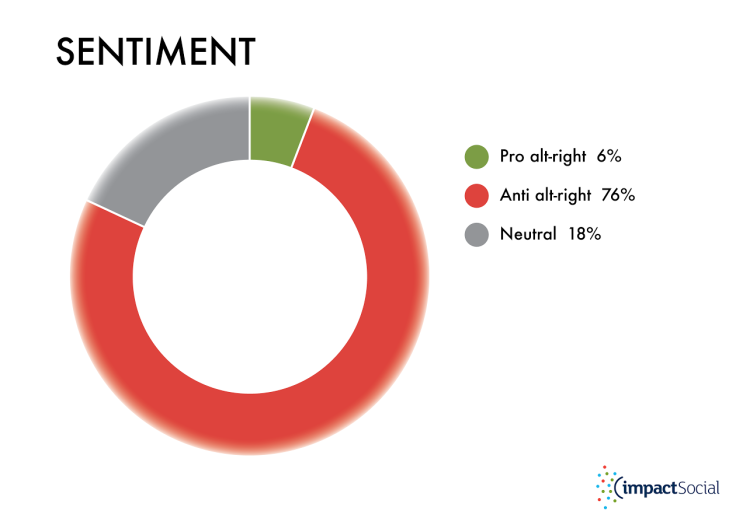The alt-right has been legitimised by Trump - but it's still a minority
Social media analysis shows only 6% of talk around the alt-right is positive.
America has elected a racist president. Even if that's not true, they have elected one who is, at the very least, tolerant of racism and who is selecting a range of key figures in his top team that combine similar attitudes to race and religion, along with an enthusiastic embrace of conspiracy theories and nationalism. Lovely.
Donald Trump is at the head of that movement: he is the alt-right poster boy, the one who has led them from off-grid to on. Now he is at the tip of an increasingly isolationist and intolerant country. The assumption is that Trump is representative of his country, rather than representing it.
The question for Trump watchers is that whether he is knowingly fuelling this new mood, with his "all Mexicans are rapists" wall-building approach, or whether he's doing so unwittingly. If you take his comment that "Breitbart is just a publication" at face value, for example, then you're dealing with a hopeless naif.
So which do you prefer? Evil Donald or Stupid Donald?
But reducing the discussion about the alt-right' to one about Trump makes the assumption that the rise of one is dependent on the rise of the other. That, given Trump has just won an election, the alt-right actually increasingly powerful.

There's certainly guilt by association, but the social media analysis company Impact Social looked at over 100,000 posts in social media and online forums in the US over the last seven days to see if the alt-right were gaining influence and credibility – and found a rather different tone.
For one thing, the right wing is far, far from the dominant voice. The negative sentiment around the alt-right took up 76% of the online chatter, with only 6% positive (18% was neutral).

The biggest concern of those who took against the alt-right surrounded its increased legitimacy –that association with the President gives the alt-right a constitutional legitimacy; that the name 'alt-right' gives them a branding legitimacy when 'Neo Nazi' would be closer to the truth; and a media legitimacy, that they are not challenged enough on the nature of their views.
So the online chatter drew Trump in, with 10% worrying about his links to the movement, while 8% thinking he had (rightly) distanced himself from them – and 4% suggesting he should distance himself more. A further 9% (fuelled by the 'Hail Trump' video) made the direct comparison to Nazis, while 13% complained about the naming – that 'Neo Nazi' would at least have the virtue of 'honesty'.
Over a third felt that the 'mainstream media', so cursed for so long by Trump, gave the alt-right too much leeway and airtime. Indeed, the profile given to Richard Spencer, the figure at the head of the infamous video, was (statistically speaking) not mentioned. In the online chatter he was simply ignored in the face of the bigger picture. He'd hate that...

That's not to paint a picture of America as a liberal paradise. Six percent of online conversation in favour of a movement linked to White Supremacy is deeply uncomfortable. A small minority of them were openly racist, but many more were adopting rather more considered public stances around the so-called 'moderate' nature of the movement (26% of the 'positive' conversation) and the media bias against them (18%). Significantly, though, their stance on immigration took over a quarter of the conversation.

And, numerically speaking, that was as sophisticated as the pro-right conversation got. Simple messages bombarding the airspace, little nuance, repetitive delivery of the same tale. That's also called propaganda.
But it's significant in volume, and confident in tone. You may sniff at 6% of social media being extreme, but this is the measure that consistently showed Trump winning the digital battle – and we know how that ended.
A white supremacy movement that feels it can move in the open and has the ear of the President. That's significant. But don't mistake it for America as a whole. They're still better than that.
© Copyright IBTimes 2025. All rights reserved.






















